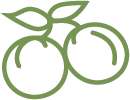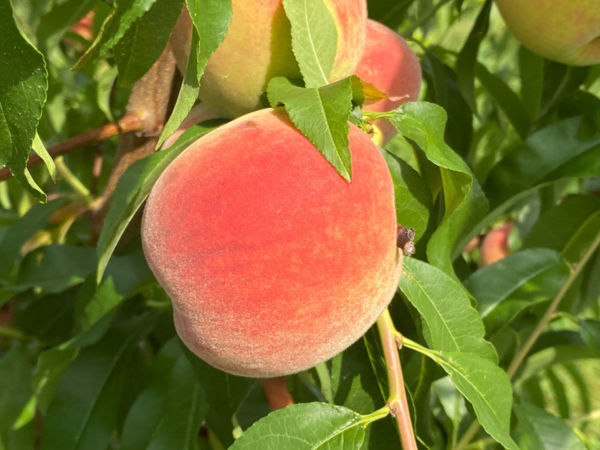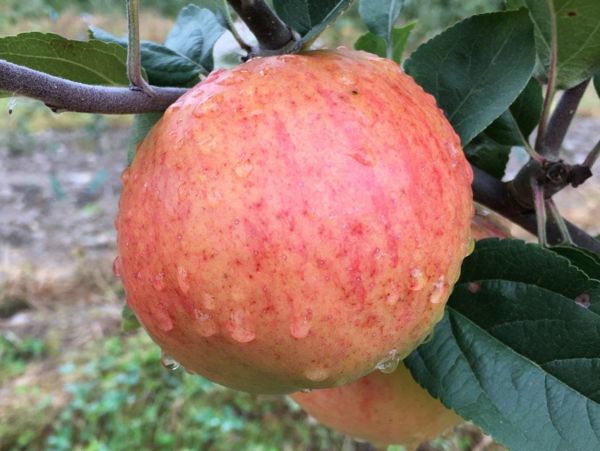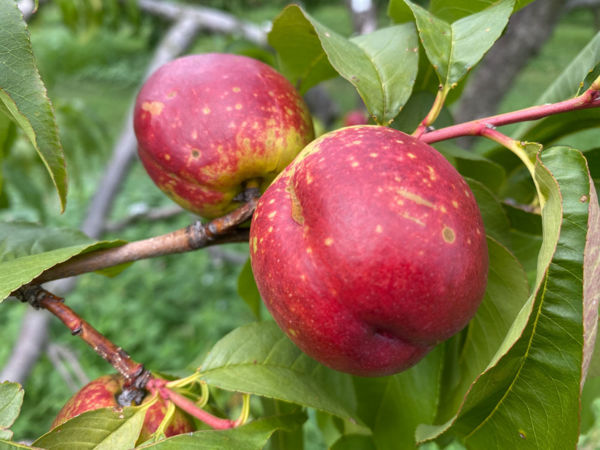An attractive, highly disease-resistant apple, ideal for organic growers.
Apple Blister Spot
Fruits Affected
Also See
Fruit Tree Diseases and Pests: An IntroductionList of Common Fruit Tree Diseases and Pests
Apple blister spot is the name given to infections of Pseudomonas syringae pv. papulans on apple trees. Pseudomonas syringae bacteria are also responsible for bacterial canker of stone fruit and blossom blight of pear trees.
Symptoms
Black freckles on fruit skin.
Organic Treatments
Blister spot does not need to be treated except in the most severe cases. If you are interested in avoiding blister spot, stay away from Mutsu (Crispin) and Fuji, as these two varieties are highly susceptible and will often pass on their freckles to nearby trees. As ever, keeping your trees well pruned and your growing area clear of dropped fruit and other debris will reduce the incidence of all sorts of diseases.
Conventional Treatments
An application of Kocide between green tip and ½ inch green may help.
Disease Cycle
Apple blister spot is the name given to infections of Pseudomonas syringae pv. papulans on apple trees. Pseudomonas syringae bacteria are also responsible for bacterial canker of stone fruit and blossom blight of pear trees. The pathogen lives on the surface of the apple tree during the growing season, and it overwinters in buds, leaf scars, and dropped fruit. The bacteria are spread by rain and insects, and new infections will occur in wet weather, particularly during bloom.
The visible symptoms of blister spot are "freckles" on your apple. The spots initially appear as tiny, dark green-black spots with discolored edges. Eventually they will turn purple-black and scabby in the center. Although a very heavily infected apple can be somewhat unsightly, blister spots are a cosmetic flaw and they do not affect the fruit in any other way. Many growers will be surprised to learn that these freckles are actually a disease. It can also cause leaf curling on susceptible varieties.
For more information, see A Growers Guide to Organic Apples from Cornell Cooperative Extension.
Featured Products
A few things we're loving right now...
A full-flavored, freestone white peach.
A traditional semisharp cider apple from Spain.
A widely-grown, large, yellow-fleshed nectarine.












